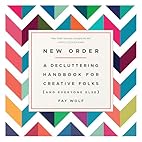The Grace of Kings by Ken Liu.
Recommended for: Anyone who enjoys epic fantasy about the fall and rise of kingdoms, especially if they like settings outside the standard medieval European-ish swords & sorcery. (Which, thankfully, is becoming less standard. Though I enjoy a good faux-Western medieval fantasy as much as the next reader, I also enjoy variety in the genre.)
While this isn't an all-time favorite for me--I tend to prefer a somewhat tighter POV approach, either first-person narration or a limited third person with an intimate focus on just a few characters (think Jacqueline Carey, Lois McMaster Bujold, or Naomi Novik), I loved the world-building and setting, which is based on the rise of the Han dynasty and China with elements of other cultures, including Japan and Polynesia, and I plan to read more in the series as it comes out.
A Thousand Nights by E.K. Johnston
Recommended for: Readers of YA and fantasy who like strong world-building, strong women and girls, and fairytale and legend retellings. (And also beautiful covers. Isn't that just gorgeous?)
I noticed a couple chapters in that I didn't know the first person narrator's name, nor that of most of the other characters--it was all my sister, my mother, my great-grandmother, etc. You'd think that would make it hard to keep track of characters or feel connected to them, but it didn't at all.
I enjoyed the heroine and her sister's resilience and determination. And the part of the world-building that stood out most to me was the character's form of ancestor worship where notable ancestors were set up as "smallgods," who both answered their family's prayers and drew power from being worshipped.
Katrina: After the Flood by Gary Rivlin
Because of the subject matter, I wouldn't say I enjoyed this book, exactly, but I found it readable and engrossing, and alternately encouraging and infuriating.
I followed Hurricane Katrina and its immediate aftermath as closely as anyone living far away from New Orleans, and I thought I knew a decent amount about the recovery and the current state of the city. This book showed me how much I didn't know, and made me think long and hard about how we as a nation handle disaster and recovery--and how our culture's biases with respect to race and class come out all the more strongly in the face of disaster. Have we learned anything that will make us better prepared the next time a major hurricane or big earthquake hits the US? I'd like to think so, but I have my doubts.
New Order: A Decluttering Handbook for Creative Folks (And Everyone Else) by Fay Wolf
I heard about this book on a recent DBSA podcast. Since I am eternally looking to improve my level of organization and time management, I decided to give it a try, especially given that bringing my house's chaos level down to something more manageable is one of my chief goals for 2016. (So far my clothes, bookshelves, and pantry have been decluttered, and it really does make me feel better about life.) This book gave me some great new ideas as I start to tackle some of the tougher projects, like kitchen tools, all the stuff we've shoved into our closets, the piles and boxes of papers, most of which are probably past their retention periods, etc.



